
If you’re so inclined, do me a favor, and click on that video of Roseanne down below, but rather than paying attention to Rosanne, listen to the audience’s reaction to her “jokes.”
There’s some laughter, but the predominant response is not laughter, but hoots (woo-hoo!) and applause.
Back when I was teaching, I would occasionally teach humor classes, and the exercise of listening for audience response was something I asked all of my students to do, starting with their own response to when the encountered a humorous text.
I was introducing them to practicing a process I call ROAS, which stands for React, Observe, Analyze, Synthesize.
(I wish I had a better acronym, but I’ve been using this for so long I feel stuck with it.)
React is exactly that, one’s actual visceral, almost entirely subconscious reaction to a stimulus or text. I very much want students to be in tune with this to start because they - like a lot of us, but particularly being young people worried about judgment - have a tendency to second guess themselves. I want them to be honest to their own reactions, whatever they may be.
Observe is both the observation of one’s own reaction and of the text itself. Once we have reacted we can notice things more purposefully and consciously, and the longer we look, the more times we go looking, the more things we notice. I sometimes prove this with a little light academic torture by putting a picture of a painting on screen and telling students to keep calling out things they observe for what seemed like an absurdly long time (maybe 10 minutes), so they get bored enough to keep looking deeper.
Another exercise I used to do along these lines was ask them to name as many euphemisms as they could manage for having sex, sending them in a loop of observing, by naming the euphemism (e.g., banging, knocking boots, etc…), and then reacting to their own observations, after which they observe those reactions and so on, and so on.
Invariably, when one of the students would pipe up with “making love,” quite a few students would laugh. That was always interesting to me, and to them.
Analyze is the process of pulling those observations together into an inference, a kind of claim or conclusion. For example, students would often notice that many of the euphemisms for having sex - banged, nailed, pounded, slammed, stuffed - have significant violent connotations, and always observe the act from the male point of view.
Synthesize is taking some of those inferences and making a bigger claim, like some of the ones I’m going to make about Roseanne and the inherently transgressive nature of humor, but what happens when transgression goes wrong, as I think it very much does in that clip.
After making their observations about audience reactions to humorous texts (or at least texts attempting to be humorous), I ask students the difference between an audience that’s laughing, and an audience that’s clapping.
They always get what I’m driving at, something I discussed in an earlier newsletter (“It’s Funny Because It’s True”) that when we laugh it is often a spontaneous response to being told something that strikes as as “true,” but which we may not have thought of in exactly that way until we heard the joke.
A really good joke is a kind of revelation.
Sometimes - maybe even often - we laugh at things that our conscious selves believe are inappropriate. Great comedians, the ones who are able to make something funny out of the inappropriate, out of the truly transgressive do so because they’re revealing something true.
Perhaps the greatest of the great at this was Richard Pryor. Here’s a clip from his famous Live on the Sunset Strip performance where he’s talking about being in the hospital recovering from having nearly burned himself alive when freebasing cocaine. (Warning, much very bad language.)
I’ve watched this clips dozens of times and there’s one relatively small moment that gets me every time, around 34 seconds into the video where Pryor jokes about how he couldn’t imagine taking care of burn victims saying that what he would is “Put some butter on him and say, that’s it.”
The audience laughs, a recognition that we likely feel similarly, but maybe wouldn’t have admitted as much without the benefit of the joke.
The Prior is joking about his own near death experience at all makes the experience of laughter pretty profound. At the very end of the clip, Pryor says that the people who helped him in the hospital were “wonderful,” and everyone applauds in agreement.
Comedian/Podcaster Marc Maron has a new special on HBO titled “From Bleak to Dark” that opens with the line, “I don’t wanna be negative, but I don’t think anything’s ever going to get better ever again.”
(Quick aside. Maron’s clearly deliberate repetition of “ever” is the kind of thing I want students in a humor writing course to be observing, as the sprung grammar of the construction is the key to the whole thing landing as a joke. Seriously, try the same line without “ever again” at the end, and it’s not as good. One of the reasons I often ask student to try humor writing even in non humor writing courses is because it requires them to develop a high sensitivity to the specifics of language on its effects. Anyway…)
In the special Maron “jokes” about his terrible, narcissistic parents, and even has a section about the sudden death of his girlfriend, the film director Lynn Shelton. You will probably laugh at these things, and you may wonder why, but the reason why is because they are funny even if it may be uncomfortable to admit to ourselves that we find death funny. The comedy is a mechanism for revealing non-apparent insights.
You would never even consider applauding or whooping because those things are different from laughter.
The audience whooping and applauding Roseanne’s “anti-woke” comedy is not reacting with laughter at a previously un-acknowledged truth, but instead expressing approval for the point of view that they already knew they agreed with.
This is not the same thing as laughter in response to a joke.
The best example of this phenomenon that I can think of in terms of stand-up comedy is Andrew Dice Clay who became an arena-level act doing material that his audience arrived already knowing to the point that they would chant the punchlines along with him, like Journey fans belting out the chorus of “Don’t Stop Believin.’”
In this case, people didn’t come to see Andrew Dice Clay for the jokes, but for the thrill of being able to say - shout really - naughty words in misogynistic packages in public.
The audience is looking for that certain frisson of uttering the taboo, but how taboo can something be when you’re shouting it alongside 15,000 other people who apparently see things the same way? I was too young to go to an Andrew Dice Clay show, but I was among those who had memorized some of his “nursery rhymes” and for a brief period would say them back and forth to each other with my friends.
This is also a form of transgression, but a transgression built on aggression, an assertion of power against a censorious society that does not “approve.” I was maybe fifteen-years-old, the age at which you think no one and nothing approves of you. I’m sure I found some kind of thrill in Andrew Dice Clay.
The hoots and applause indicating agreement fundamentally come from a place of grievance, but these grievances are often invented in order to provide a rallying point to agitate against. This is the nexus of Roseanne’s current comedic trajectory, the notion that “real Americans” like Roseanne are a besieged minority, which is truly nonsense.
I am not offended by Roseanne’s routine because of her message. If I take offense it’s because it’s so unbelievably bad and hacky. This was a once truly innovative performer, someone whose standup and sitcom were popular because of its insistence on transgressing when it came to the image of the “happy family” and telling it like it is.
Consider this clip from relatively early in her career where she established her “domestic goddess” persona, an ironic joke commenting on the drudgery of being a housewife that she used as her material.
In many ways the material is similar to 2023 Roseanne, riffing on the lives of women, but the differences are pretty remarkable. Consider the delivery in the 1986 clip, a kind of quiet, sly slipping of the jokes into a conversational tone that builds momentum as she goes. Contrast that to 2023 where she’s literally shouting the material at her audience.
There’s a fragility to Roseanne’s current comedic point of view that is, I think, inconsistent with truly great, meaningful humor, which is instead often rooted in vulnerability, even when comedy at some level is inherently aggressive. The domestic goddess Rosanne is still confident, even cocky, but part of why that comedy worked is because sharing these feelings about one’s family is inherently vulnerable.
Some of this is because of changing times and tastes, but some of the best recent examples of this are Hannah Gadsby’s Nanette, Jerrod Carmichael’s Rothaniel, and Bo Burnham’s Inside.
Fragility becomes a kind of sensitivity, a brittleness that is incompatible with comedy. Vulnerability is an invitation, first for the creator of the humor to look more closely at themselves, and second for the audience to join in both via observation of the performer, and via self-reflection. This injection of pathos takes the experience of the humor to another level.
Putting on my empathy hat, I can conjure some understanding for the people who look at a changing world and find it unfamiliar and therefore scary, and so latch onto messengers that reaffirm their correctness in the face of what they perceive as an aggressor, but also, I want to say, “get over it,” things change. Railing about the use of inclusive pronouns is just, I don’t know…kind of dumb?
The world did not stop spinning when we went from fireman to firefighter, and it will not be harmed if we use “they” as a singular pronoun, something we actually have done for centuries without anyone taking much notice.
A couple years back I made some humor out of what to me seemed to be some absurd lengths some (primarily white) guys went to justify the full use of the n-word under the use/mention distinction.
Like, I get it, the use/mention distinction is meaningful. There is a difference between calling someone the n-word and uttering it as part of a reference to something else. But honestly, why spend so much time going to the mat on this? Is the slope really all that slippery, or are we actually looking at a situation where it’s just fine if white people stop using the word?
People with power get uncomfortable when they sense some of that power going away.
Roseanne’s comedic persona always relied on her being perceived as a kind of “jerk,” someone who is too blunt, someone who is too willing to go to gross places, but there is a difference between being a lovable jerk saying things other people don’t have the guts to say, and being an asshole. I am not a huge fan of the “punching up/punching down” framework for humor that says people of more status cannot and should not make a target of those with lower status because I think it flattens out a discussion that should be had in more depth, but it is very tough to maintain a comedic persona of delivering truths when you are simply being an asshole.
Perhaps the greatest tragedy on this front is what has happened to Dave Chappelle in recent years as he has reacted to criticism of his material by making progressively less funny comedy as an attempt at payback against those who criticized him. The man is still a genius at his craft, but it’s a shame as to what he’s using that genius to do.
Any time someone says something that they say you can’t say anymore, I have to point out, that there they are, right there, saying it. As soon as someone declares “I may get cancelled for this,” you can be certain that no cancellation is going to occur.
That people may object, or not applaud what you have to say is just the breaks of the game.
I actually intended to start the newsletter with a discussion of my Chicago Tribune column this week because it’s about humor, and how a negative, one-star Amazon review of the new novel Big Swiss by Jen Beagin convinced me that I needed to read the book. The review objected to some of the humor in the book in a way that indicated that I would find the book funny.
It is funny in a fresh, genuinely transgressive way. The narrator, Greta, is working as a transcriptionist for a sex therapist in the small, odd town of Hudson, New York, and becomes fascinated with one of the patients whose sessions she transcribes who she nicknames Big Swiss. It’s not giving anything away to say that Greta and Big Swiss intersect in real life, a relationship that is rather fraught (on Greta’s side) given what she knows about Big Swiss from doing those transcriptions of their therapy sessions.
The novel is one big bundle of inappropriateness rendered with impeccable comedic timing by Beagin and I’ve loved reading it.
Others will be very turned off by the novel, unable to connect with Greta because of the depth of her transgressions, but for my particular sense of humor, the novel adds up to a big cosmic “yes.”
It would be a terribly boring world where everyone thought the same things are funny.
That said, Roseanne’s new material is objectively not funny.
You know who agrees with me? All of those people in her audience who are clapping, rather than laughing.
Links and Tidbits
We’re well into February, so you should take a look at this list of the best Southern books of February before we get to March.
Year-to-year bookstore sales rose by 6.2% in 2022. That’s a good thing.
Leigh Stein, author of the novel, Self Care, goes looking at BookTok and finds lots of things worth liking and encourages writers and publishers to be open to its potential
A new exhibit at the University of Chicago asks what makes a book a book. Christopher Borrelli of the Tribune investigates.
My column next week is about “weird books.” Here’s a piece on some highly regarded “surreal novels,” to tide you over until you can read my take on the unconventional.
At The New Yorker, Ted Chiang, author of Stories of Your Life and Others and Exhalation, explores the nature of ChatGPT and is not particularly impressed.
Earlier this week, I sent out a newsletter about “what I’m doing about ChatGPT,” namely, creating a course and community that brings teachers and instructors together to craft a human response to a world in which these algorithms exist. You can find it Here: Teaching Writing in an Artificial Intelligence World.
Recommendations
All links to books from this site go to Bookshop.org, and affiliate income will be donated to Open Books of Chicago, and another book or reading-related charity to be named later. (Make a recommendation in the comments!)
1. The Every by Dave Eggers
2. How Fiction Works by James Wood
3. Dr. No by Percival Everett
4. Mercury Pictures Presents by Anthony Marra
5. Revolutionary Road by Richard Yates
Ben T. - Phoenix, AZ
I understand that Lorrie Moore has a new novel coming out later this year, but in the meantime, I think her previous novel, A Gate at the Stairs is a good fit for Ben.
Alrighty gang, that’s all for this week. See you next week, same approximate time, same place.
JW
The Biblioracle

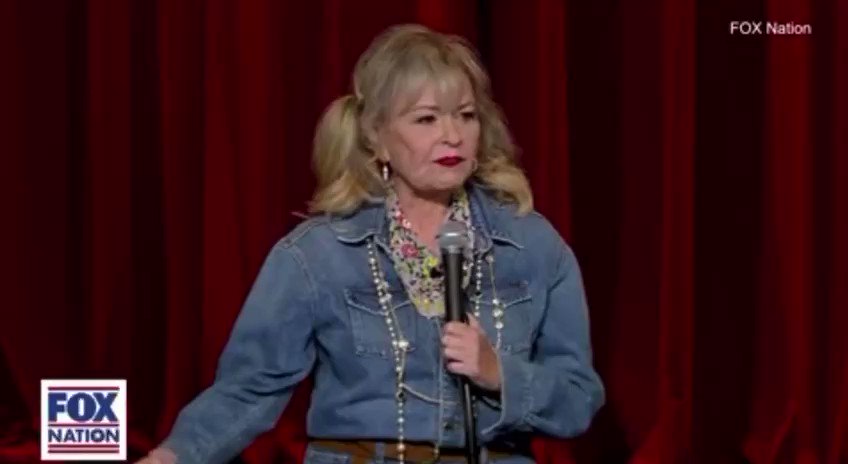



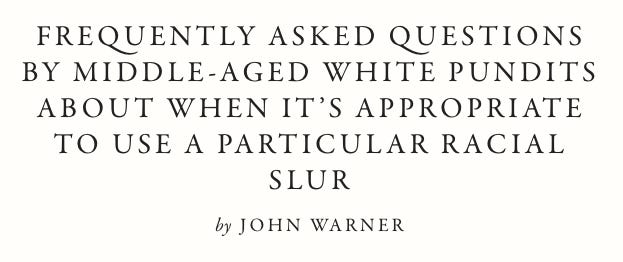






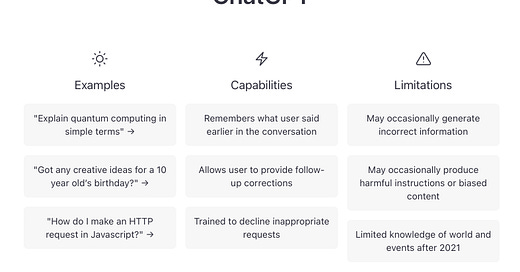

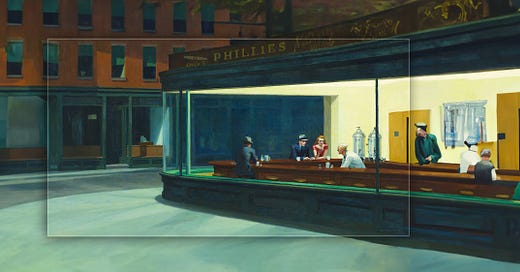

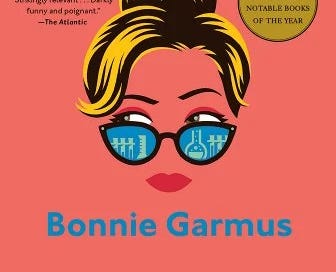

Thank you for the education re the difference between the audience laughing and clapping at a comedic event. I so “get” it and love the clips you provided to enable the learning. I also always appreciate your insights so eloquently shared with your writing. Please let me know if you ever offer a writing class online for adults of a certain age!
John, interesting column this week. Watching the video about Roseanne reminded me I never thought she was funny when she first came on the entertainment scene. She was a bit shocking initially, and from my perspective, she had a few good moments. But as I said, I never found her funny - just rather crude and rude. And she is even less funny in that video. That's just my perspective.